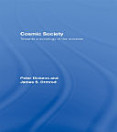Reconstructing Nature: Alienation, Emancipation and the Division of Labour
พ.ย. 2002 · Routledge
eBook
234
หน้า
family_home
มีสิทธิ์
info
reportคะแนนและรีวิวไม่ได้รับการตรวจสอบยืนยัน ดูข้อมูลเพิ่มเติม
เกี่ยวกับ eBook เล่มนี้
One of the main features of the contemporary environmental crisis is that no one has a clear idea of what is going on. The author uses an extension of Marx's theory of alienation to explain why people find it so difficult to relate their different knowledges of the natural and social world. He argues that nevertheless it is possible to relate these to the abstractions of ecological discourse. Emancipation can come only through embracing science and rationality rather than rejecting them and, in the process, humanity as well as the non-human world will benefit.
เกี่ยวกับผู้แต่ง
Peter Dickens is Reader in Sociology at the University of Sussex.
ให้คะแนน eBook นี้
แสดงความเห็นของคุณให้เรารับรู้
ข้อมูลในการอ่าน
สมาร์ทโฟนและแท็บเล็ต
ติดตั้งแอป Google Play Books สำหรับ Android และ iPad/iPhone แอปจะซิงค์โดยอัตโนมัติกับบัญชีของคุณ และช่วยให้คุณอ่านแบบออนไลน์หรือออฟไลน์ได้ทุกที่
แล็ปท็อปและคอมพิวเตอร์
คุณฟังหนังสือเสียงที่ซื้อจาก Google Play โดยใช้เว็บเบราว์เซอร์ในคอมพิวเตอร์ได้
eReader และอุปกรณ์อื่นๆ
หากต้องการอ่านบนอุปกรณ์ e-ink เช่น Kobo eReader คุณจะต้องดาวน์โหลดและโอนไฟล์ไปยังอุปกรณ์ของคุณ โปรดทำตามวิธีการอย่างละเอียดในศูนย์ช่วยเหลือเพื่อโอนไฟล์ไปยัง eReader ที่รองรับ





